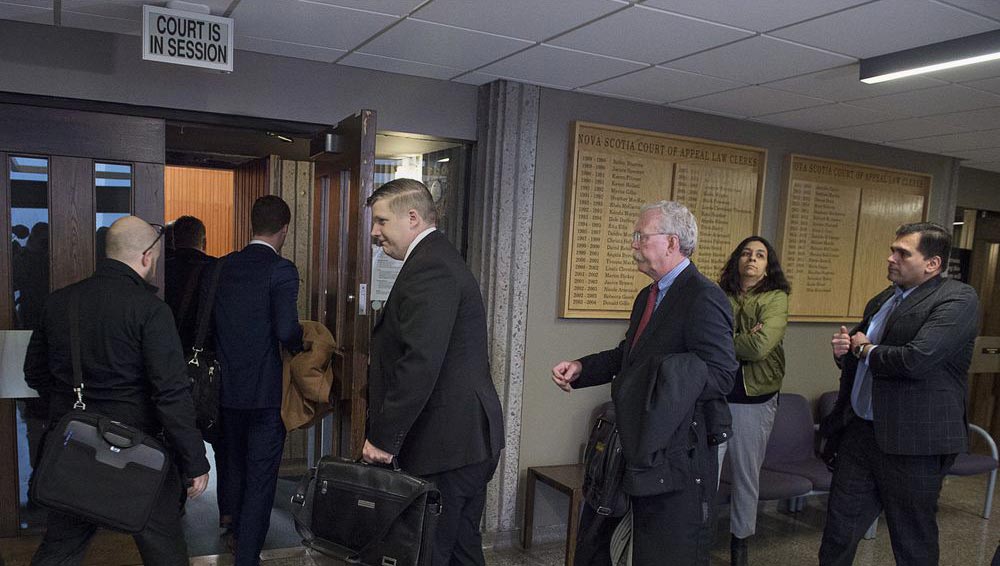QuadrigaCX, a Canadian cryptocurrency exchange, lost access to $190 million worth of customer cryptocurrencies after its founder, Gerald Cotten, passed away on December 9th 2018 after several episodes of cardiac arrests while travelling in India.
According to Jennifer Robertson, Cotten's widow, he died at a hospital in Jaipur after being diagnosed with septic shock, perforation, peritonitis, and intestinal obstruction.
Apparently, Cotten took the sole knowledge of QuadrigaCX's account passwords to his grave. The cryptocurrency was held in QuadrigaCX's cold wallet in the laptop that only the deceased CEO had access to.
QuadrigaCX has 363,000 registered users and a sum of C$250 million ($190 million), owed to its 115,000 affected users.
The company announced this incident on 14 January 2019.

Blockchain analysts have reported that they are unable to find evidence of Quadriga's cold wallets on the blockchain, a public ledger used from cryptocurrencies. But still, QuadrigaCX continued to accept deposits until January 26.
Later, the company made a mistake, in which according to a preliminary report filed by Ernst and Young, which acts as a court-appointed monitor for the company, QuadrigaCX sent 103 Bitcoins (worth more than $460,000) to the locked cold storage wallet.
Because founder Gerald Cotten died, no one - not even QuadrigaCX and not its customers - can retrieve the majority of the cryptocurrencies held by the exchange.
What seems to be here is that, the cryptocurrencies are lost forever.
Quadriga Fintech Solutions is the owner and operator of QuadrigaCX. It was considered Canada's largest cryptocurrency exchange until this incident happened.
This news became public following a January 31 affidavit filed by Cotten's widow Jennifer Robertson, and published by Coindesk.
"On February 6, 2019, Quadriga inadvertently transferred 103 bitcoins valued at approximately $468,675 to Quadriga cold wallets which the Company is currently unable to access," the report reads. "The Monitor is working with Management to retrieve this cryptocurrency from the various cold wallets, if possible."
Following these catastrophic incidents, a number of QuadrigaCX account holders with cash or cryptocurrency balances are taking the exchange to court. The Ernst and Young report noted that 427 "affected users" have already obtained legal counsel.
Meanwhile, the company only has $902,743 worth of cryptocurrency being held in so-called "hot wallets" - wallets the exchange can still access - as of February 5th. But that was before over half of that was then "inadvertently" lost by the company.
Ernst and Young intends to transfer the remaining cryptocurrencies into a cold wallet that it controls, so QuadrigaCX won't lose anymore of customers' cryptocurrencies in case another screw up happens.

As for the news of Gerald Cotten's death, people aren't taking it lightly.
Cotten signed his will on November 27, 2018, which was then filed on December 21. Robertson confirmed that the gross value of her husband's personal property that is left to her was C$9.6 million.
This includes a real estate in Kelowna, British Columbia and one at Nova Scotia, an airplane, a sailboat, and a 2017 Lexus. There is also an additional C$100,000 trust fund for providing lifelong care for Cotten's two chihuahuas.
The will specifically stated that Robertson was authorized to access his digital assets and "obtain, access, modify, delete and control (his) passwords and other electronic credentials."
But Robertson, in an affidavit, said she was not involved in any of her husband's business, and she insisted that her husband was the only person with access to the private digital keys.
For this reason, Robertson said that she has received numerous online threats, including slanderous comments and speculation about her husband's death, "including whether he is really dead."
The circumstances surrounding Cotten's death was made worse as the public realized that Cotten conducted his business from the the couple's home in Nova Scotia. Ernst & Young further reported that QuadrigaCX didn't have a bank account, and instead used third-party payment processors. It also had no formal accounting system.
This led to many speculations and allegations happening on the internet.
This include some Reddit users suggesting that Cotten faked his own death to defraud QuadrigaCX customers through an exit scam.
Globe and Mail columnist Takara Small in a a CBC News interview, expressed skepticism that Cotten might be "living the high life on like a deserted island."
The Nova Scotia Supreme Court granted QuadrigaCX protection from its creditors, and gave the company time to find the missing digital assets and draft a plan to restructure or sell the business.